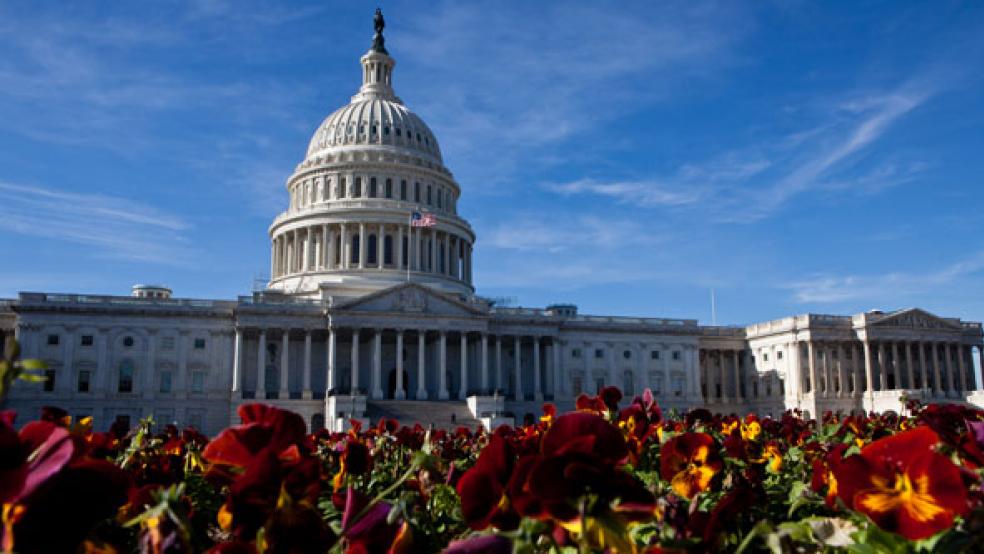The bipartisan Super Committee trying to forge a politically acceptable path for deficit reduction ended in a super fail, and one of the big reasons appears to be disagreement over the extension of the Bush tax cuts for high income households. Republicans argue that increasing taxes on the wealthy would lower the incentive of the rich to engage in productive activity and harm economic growth and the recovery. Democrats counter that there is little evidence that the Bush tax cuts increased economic growth, so reversing them will not be harmful.
They also argue that the present tax structure places too little burden on the wealthy and too much on the middle and lower classes, and therefore the expiration of the Bush tax cuts for high income households would make taxes more progressive and more equitable without endangering the recovery. Allowing the cuts to expire would also provide $800 billion in revenue over the next ten years and this would help to preserve important social programs.
The failure of the committee to come to agreement on the Bush tax cuts does not end the battle on this issue, it only delays it. If Congress does nothing the Bush tax cuts for all income classes will expire at the end of this year. In addition the two percent payroll tax cut enacted to battle the recession is scheduled to expire in December, and extended jobless assistance is also set to end at this time.
I do expect Democrats to be the champions of the poor, the underprivileged, and the unemployed.
How should Congress and the White House react? I don’t expect Republicans to put the unemployed at the forefront of their policy agenda. It comes as no surprise that they would insist on tax cuts for the wealthy despite their purported concern for the deficit, and then sing a different tune for the working class. For example, Sen. Jeff Sessions (Ala.), the ranking Republican on the Senate Budget Committee, said he was uneasy about extending the payroll tax holiday, calling the national debt ‘a greater threat to us’ than the weak economy.
But I do expect Democrats to be the champions of the poor, the underprivileged, and the unemployed. When and how did the need for deficit reduction – particularly through cuts to social programs – come to be more important than the needs of households struggling with the recession? Why aren’t Democrats talking about the need to help the unemployed at every possible opportunity? Where’s the Super Committee for Job Creation?
President Obama and many Democratic members of Congress have endorsed the idea that budget deficits are biggest threat we face right now, and that other business such as job creation must be set aside so that the deficit issue can be addressed. This has helped to convince the public that the national debt is our biggest concern, and that we simply do not have the resources to do more to help with job creation.
We can still do more to help the unemployed without sacrificing our ability to address our long-run deficit problem.
We do have a long-run debt problem. But we also have an unemployment crisis and the question is which problem is more important right now. Our long-run debt problem is mainly a problem of rising health care costs, and a delay of one or two years before the problem is addressed does not alter the long-run picture much at all. We need a credible plan for the future, but there is still breathing room before the plan needs to be enacted. And more importantly, contrary to the impression that has been left in the minds of the public, we can still do more to help the unemployed without sacrificing our ability to address our long-run deficit problem.
Unfortunately, changing the conversation now may be difficult. The main cause of our present deficit is a combination of the recession, the Bush tax cuts, and wars, and those three items will continue to be the main source of deficits in the near future. But Democrats have allowed Republicans to portray the problem as out of control spending on social programs that require super special commissions to resolve immediately, and it will be difficult to change that perception now. And it will be even harder if not impossible to find political support for job creation projects such as large-scale infrastructure creation. But it’s important that Democrats at least try since any success at all would make a huge difference to the unemployed that find jobs because of their efforts.
As noted above, we do need to address the long-run deficit problem in the next few years and I would like to see Democrats adopt a tougher stance on the need for higher income households to pay more in taxes so that important social programs can be preserved. But right now our main problem is the unemployment crisis. The longer it goes on, the more permanent the harm to the working class and it’s essential that Democrats in Congress remember they have a constituency that extends beyond the wealthy interests that fund their






